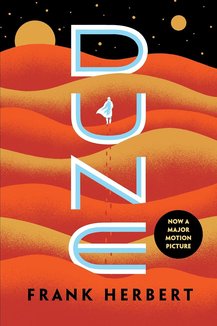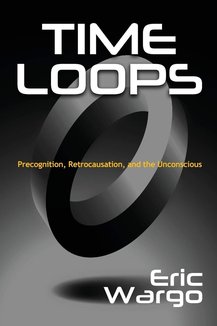Recommended Books

Dune (Dune Chronicles, Book 1)
Author:
Frank Herbert
ISBN 13:
978-0441013593
• DUNE: PART TWO • THE MAJOR MOTION PICTURE Directed by Denis Villeneuve, screenplay by Denis Villeneuve and Jon Spaihts, based on the novel Dune by Frank Herbert • Starring Timothée Chalamet, Zendaya, Rebecca Ferguson, Josh Brolin, Austin Butler, Florence Pugh, Dave Bautista, Christopher Walken, Stephen McKinley Henderson, Léa Seydoux, with Stellan Skarsgård, with Charlotte Rampling, and Javier Bardem Frank Herbert’s classic masterpiece—a triumph of the imagination and one of the bestselling science fiction novels of all time. Set on the desert planet Arrakis, Dune is the story of Paul Atreides—who would become known as Muad'Dib—and of a great family's ambition to bring to fruition humankind's most ancient and unattainable dream. A stunning blend of adventure and mysticism, environmentalism and politics, Dune won the first Nebula Award, shared the Hugo Award, and formed the basis of what is undoubtedly the grandest epic in science fiction.

Time Loops: Precognition, Retrocausation, and the Unconscious
Author:
Eric Wargo
ISBN 13:
978-1938398926
Time Is Not What You Think It Is. Neither Are You. Welcome to a world where participants in psychology experiments respond to pictures they haven’t seen yet … where physicists influence the past behavior of a light beam by measuring its photons now … and where dreamers and writers literally remember their future. This landmark study explores the principles that allow the future to affect the present, and the present to affect the past, without causing paradox. It also deconstructs the powerful taboos that, for centuries, have kept mainstream science from taking phenomena like retrocausation and precognition seriously. We are four-dimensional creatures, and sometimes we are even caught in time loops—self-fulfilling prophecies where effects become their own causes.

Value in Ethics and Economics
Author:
Elizabeth Anderson
ISBN 13:
978-0674931909
Elizabeth Anderson offers a new theory of value and rationality that rejects cost–benefit analysis in our social lives and in our ethical theories. This account of the plurality of values thus offers a new approach, beyond welfare economics and traditional theories of justice, for assessing the ethical limitations of the market. In this light, Anderson discusses several contemporary controversies involving the proper scope of the market, including commercial surrogate motherhood, privatization of public services, and the application of cost–benefit analysis to issues of environmental protection.